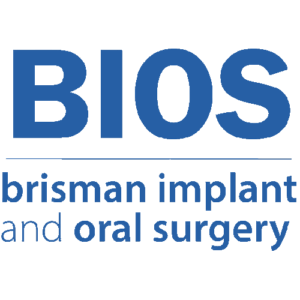On any given day, the average person probably won’t be able to tell if their jaw is misaligned. You may look in the mirror and see what appears to be perfectly straight teeth and think that nothing could be wrong. But a seemingly perfect arch doesn’t mean you’re not dealing with some underlying issues.
On the other hand, the state of your smile doesn’t always correlate with the alignment of your jaw; however, they can be connected. If your jaw feels a little stiff or sore, and it’s hard to open your mouth wide enough to yawn, you might have a misaligned or uneven jaw.
What is a misalignment of the jaw?
Misalignment of the jaw, also known as “malocclusion,” is a condition where the jaw position is not properly aligned. Jaw problems like misalignment can cause pain and discomfort and make it difficult to open your mouth wide.
Severe dental misalignment can affect things like eating and drinking. It can even cause more complex issues like trouble speaking or breathing problems. Alignment issues can cause your teeth to dig into your gums or lips, or make you more susceptible to tooth decay, tooth damage, or even tooth loss.
Pain and Stiffness
If your jaw feels a little stiff or sore, and it’s hard to open your lower jaw wide enough to yawn, you might have a misaligned jaw. Misalignment can cause you to compensate in various ways, leading to additional aches and or chronic pain in the jaw joint.
Speech Impediments
If you’re having trouble speaking clearly or experiencing a speech impediment, it could be a sign that your jaw is misaligned. Misalignment of the jaw and bite can cause problems with articulation and make it difficult to produce certain sounds.
Bite Problems
Bite issues, crooked chin, or crooked teeth could also signify that your jaw is misaligned. When the jaws are not aligned properly, and a crooked bite is left untreated, it can cause uneven wear on the teeth and lead to misalignment of the jaw over time.
Headaches
If you’re frequently experiencing headaches and temple pain, it could signify that your jaw is misaligned. The misalignment of the jaw can put stress on the muscles in the head and neck, which can lead to tension headaches.
Clicking or Popping Sounds
If you’re hearing clicking or popping sounds when you move your lower jaw, it could be a sign that your jaw is misaligned. Clicking or popping sounds usually occur when the misaligned jaws rub against each other. This sensation can be very painful.
Causes of Jaw Misalignment
Treating a misaligned jaw position can be tricky, as there can be many causes of the condition. Some common causes of misalignment include:
- Poor oral hygiene
- Incorrect chewing habits
- Problems such as cavities or disease
- TMJ disorder—a condition that affects the jaw joint
If you are experiencing pain or discomfort in your jaw, it is vital to see a dentist to determine the exact cause and receive the proper treatment.
Treatment for Misaligned Jaws
Misalignment of the jaw can be treated with various methods, depending on the severity of the condition. If you have mild misalignment, your dentist may recommend wearing a mouthguard or orthodontic braces to correct the jaw alignment. If you have more severe misalignment, you may need surgery to realign the jaws.
Treatment Options for a Misaligned Jaw
There are several different treatments to correct a misaligned jaw. Here are a few:
- Mouthguard or Traditional Braces to Straighten Teeth: Wearing a mouthguard or braces can help restore jaw alignment by realigning the jaws. You can use them on upper and lower teeth to adjust the alignment of misaligned teeth and help the overall alignment of the upper and lower jaws.
- Correcting Poor Oral Hygiene and Chewing Habits: If you have poor oral hygiene habits or are chewing incorrectly, it can lead to issues with jaw misalignment due to various dental problems. Correcting these problems can help reduce the chances of misalignment of the jaw and ensure the health of your teeth.
- Correcting Dental Problems: One of the ways that misalignment of the jaw can be treated is by correcting any dental issues you may have. These corrections include treating cavities, gum disease, and other problems. Treatment of these problems can help to reduce a misaligned jaw.
Treating TMJ Disorder
If you have TMJ disorder, treating it can help to correct the misalignment of the lower jaw. Please note this does not work in all cases of misaligned jaws.
Some of the best things you can do to treat TMJ Disorder are resting the jaw, applying heat or cold to the jaw, exercising the jaw muscles, and taking medications as needed to manage pain and inflammation in the mouth. More severe cases may require corrective surgery if recommended by your dentist.
Jaw Surgery
If you have a misaligned jaw that’s more severe, you may need jaw surgery to realign an uneven jaw. Surgery is a more permanent solution and usually requires general anesthesia, so the patient sleeps during the operation. The surgeon will use metal plates to fix the misaligned jaw and guide them together more evenly.
Some of the most common jaw surgeries are for people who have had injuries or have misaligned teeth due to genetic conditions or tooth decay. If you are considering jaw surgery, please consult with your dentist to see if it is the best solution.
Let’s get this straightened out!
The jaw is the foundation of our face, and becoming misaligned can lead to many problems. If you’re experiencing any jaw pain in your joints, muscles, or head or even want to discuss with a dental professional further after reading this article, please feel free to contact us for an appointment at (212) 348-0020. We want to help find the underlying cause and solve these issues so that you don’t have to suffer any longer.


